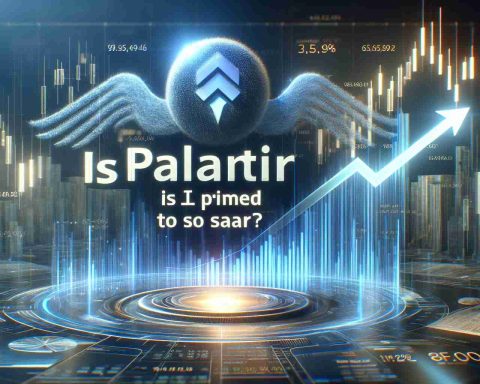In an exciting new realm of gaming, Bobby Voicu, the CEO of MixRift, is pioneering advancements in mixed reality experiences. MixRift aims to create engaging leisure activities that blend real and digital worlds, enhancing gameplay like never before. This innovative approach is anchored in the integration of augmented and virtual realities, promising players a more immersive journey.
The company’s flagship project, Hell Horde, exemplifies this vision. In this game, players find their living spaces transformed, as monsters invade through an otherworldly portal. Voicu shared insights on how the technology is progressing, hinting that consumer devices will soon comprehensively recognize physical spaces, making gameplay more intuitive and interactive.
Recently, MixRift secured $1.6 million to further its ambitious goals in this dynamic sector. This achievement stands in contrast to Voicu’s previous funding efforts, which were far more challenging. His past success undoubtedly instilled investor confidence, and the funds will facilitate the rapid prototyping of engaging gameplay designs.
Voicu emphasized the importance of testing in creating addictive games. The team rapidly develops different prototypes to discover what resonates with players. MixRift actively engages with communities, utilizing platforms like Facebook to gather eager testers for its innovations.
As the realm of extended reality gaming flourishes, Voicu is bullish on the potential for smaller studios. He anticipates that MixRift’s creativity will carve out substantial success in the evolving market. Voicu dreams big, looking forward to a sustainable and thriving future in this exhilarating industry, all while keeping his focus on refining and honing their game mechanics.
Mixed reality (MR) gaming combines elements of virtual reality (VR) and augmented reality (AR), creating an interactive experience that can significantly alter the way players engage with the game. While MR enhances immersion, it also raises questions about the underlying technology and its accessibility. One critical question is: What types of hardware are required for optimal mixed reality gaming? The answer is that mixed reality typically requires advanced headsets (like Microsoft’s HoloLens or Meta Quest) which are capable of delivering high-quality graphics and accurate spatial tracking. Furthermore, MR experiences often depend on external sensors and cameras to integrate the physical environment with digital elements.
Another important question centers around the audience for mixed reality gaming: Who are the target demographics? The ideal audience spans across gamers looking for cutting-edge experiences, educators utilizing gamification for learning, and enterprises seeking training solutions. This diversity highlights MR’s broad potential.
Key challenges in mixed reality gaming include technological limitations and user adaptation. Many consumers may find current MR systems prohibitively expensive or complex to set up, hindering widespread adoption. Moreover, the need for users to adapt their physical spaces to accommodate MR experiences can be a barrier.
There are also controversies surrounding mixed reality gaming, particularly concerning user safety and privacy. As mixed reality applications often require continuous tracking of physical environments and user movements, there are concerns about data collection and consent. Developers must navigate these issues to build trust among users while ensuring compliance with privacy regulations.
Advantages of mixed reality gaming include heightened engagement and new creative possibilities. Players can interact in ways traditional gaming cannot offer. For instance, they can physically move around their environments, solve puzzles that blend digital objects with real-world settings, and experience stories that are deeply intertwined with their surroundings.
On the other hand, disadvantages include potential physical risks and the requirement for significant investment in technology. Players might face obstacles in their environments, inadvertently injuring themselves or damaging property while immersed in gameplay. Additionally, the cost of high-quality MR equipment can be a barrier for many potential users, limiting its market reach.
For those interested in exploring further, related links to augmented and virtual reality domains include:
– Innovative Immersive Experiences
– Augmented Reality Organization
– Virtual Reality Pop
– XR Association
The ongoing evolution of mixed reality gaming represents a fascinating intersection of technology, creativity, and user experience, paving the way for new opportunities and challenges in the gaming industry.



















